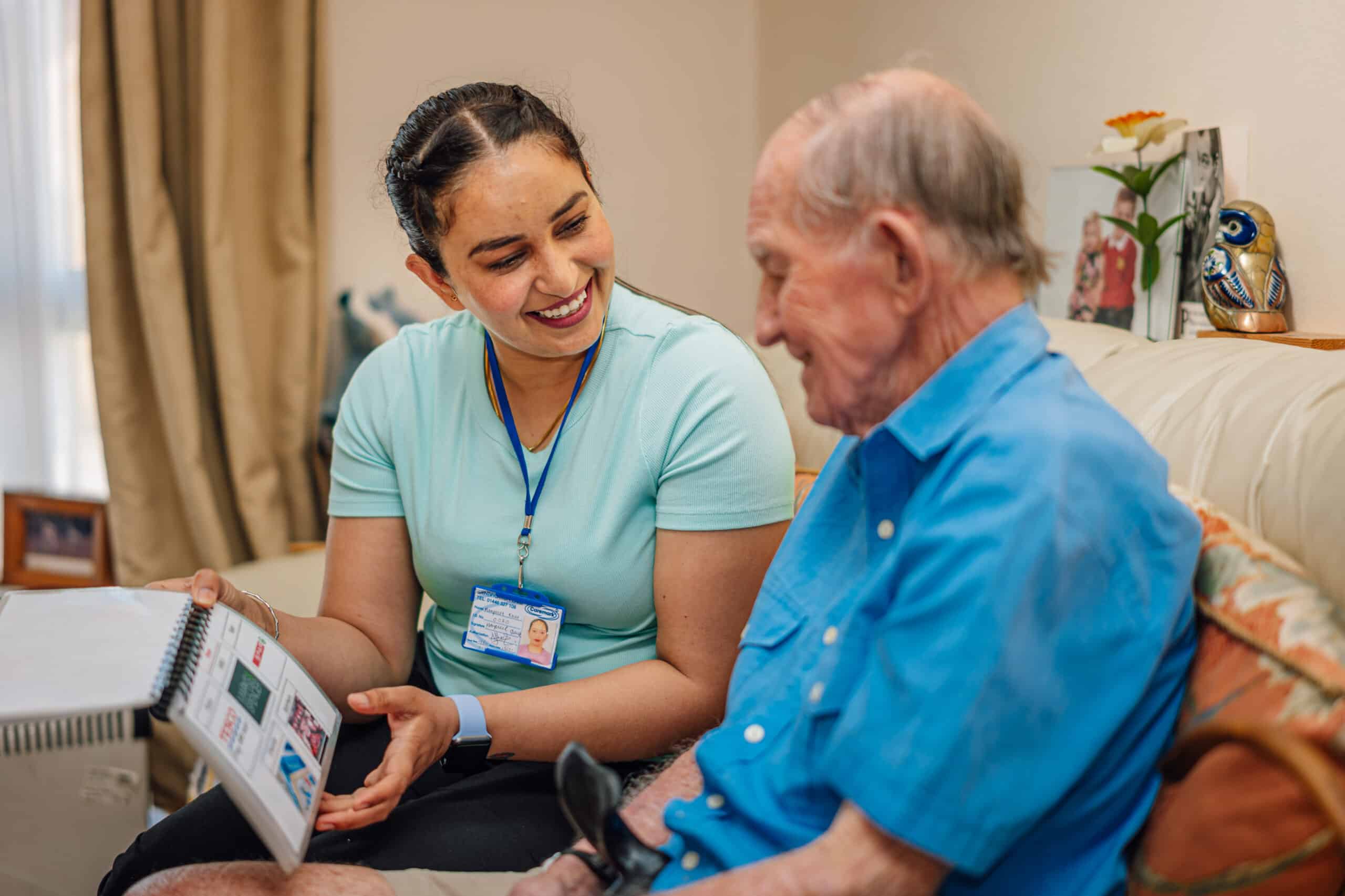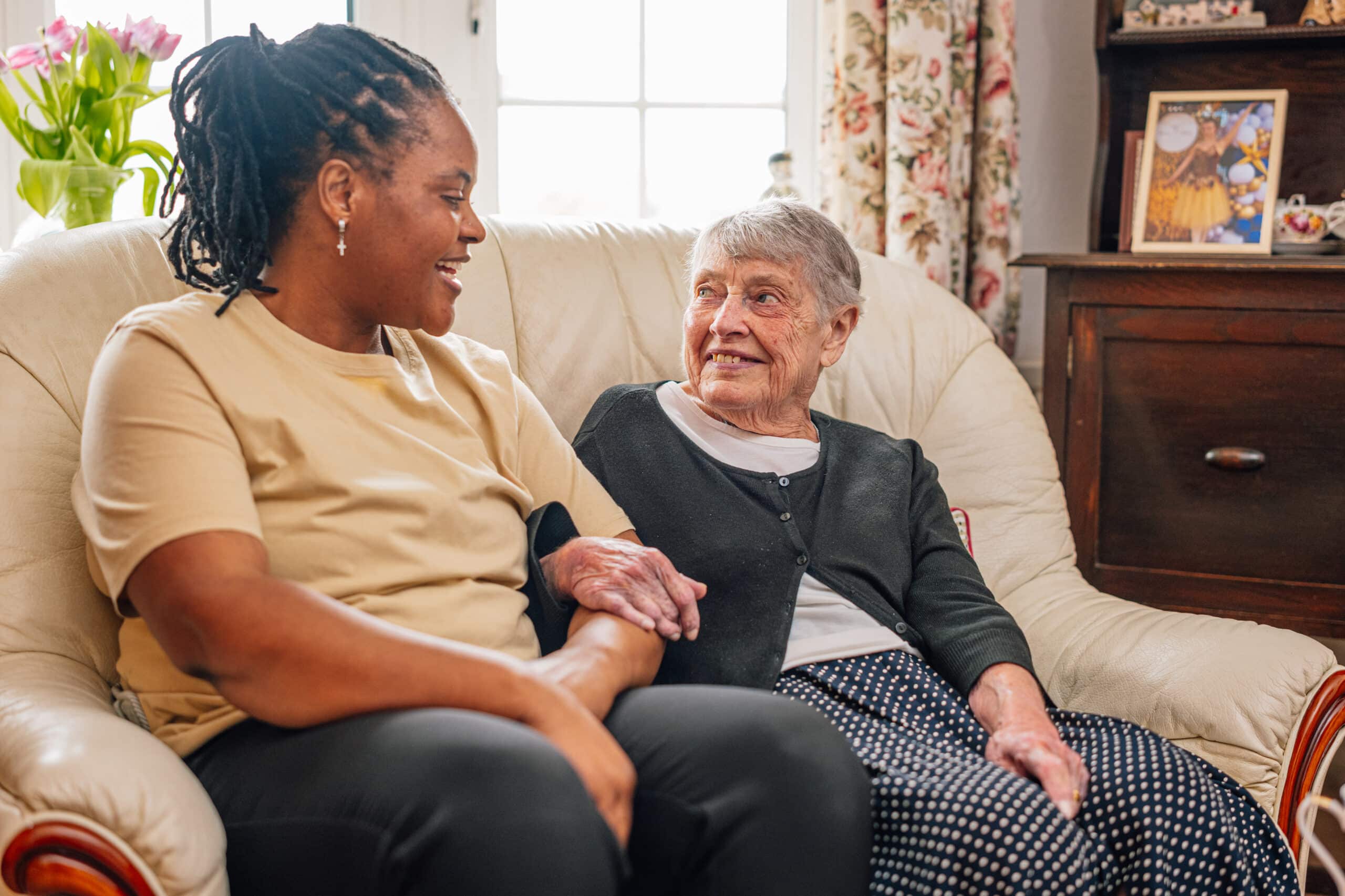Understanding Key Duties of Live-in Care Assistants

As people age or face health challenges, the idea of leaving home for a nursing home can feel overwhelming. That’s where home care comes in. This alternative allows people to remain in the comfort of their own homes, with familiarity and independence. However, some people need more than just home help, they need 24/7 support. That’s where live-in care assistants can be helpful. People in need will get the help they need by having someone living with them. But what exactly does a live-in care assistant do? Read more to learn all about the key duties of live-in care assistants.
What Is a Live-In Care Assistant?
A live-in care assistant, as part of their key duties, is a trained professional who lives in a customer’s home to provide round-the-clock care and support. Live-in care assistants are present 24/7, offering a consistent and reassuring presence. They support individuals with dementia or mobility issues, as well as people managing long-term conditions. This type of care is personalised. It is often tailored to suit the customer’s lifestyle, preferences, and routines.
How Do Live-In Care Assistants Differ from Home Care?
While both live-in and home care assistants play vital roles, there are some important differences between them. Live-in care assistants provide continuous, around-the-clock support. This allows them to build strong, trusting relationships with the people they care for. They can then respond quickly to changing needs, including during the night. This, therefore, offers a level of flexibility that other care may not provide. As well as practical help, live-in care assistants offer meaningful companionship, helping to reduce loneliness and promote emotional well-being. They often become part of the household and support family members as well as the customer. In contrast, home care assistants typically visit for shorter, scheduled periods. This can be ideal for those who need less frequent support.

The Key Duties of Live-In Care Assistants
The key duties of live-in care assistants are wide-ranging and tailored to each individual’s needs. These may include:
1. Personal Care
Live-in care assistants help with washing, dressing, toileting, and mobility support. They do so with dignity and respect, ensuring the customer feels comfortable and in control.
2. Medication Support
They help with medication reminders, administration, and monitoring side effects. This is especially important for those managing complex health conditions.
3. Meal Preparation and Nutrition
Live-in care assistants prepare nutritious meals that suit the customer’s dietary needs and preferences. They may also assist with feeding if required.
4. Household Tasks
From help with shopping to organising appointments, live-in care assistants help keep the home running smoothly.
5. Companionship and Emotional Support
Live-in care assistants provide emotional support, conversation, and companionship. This combats isolation and promotes mental well-being.
6. Monitoring and Reporting
They observe changes in health or behaviour and report any concerns, which ensures early intervention when needed.

What Training Do Live-In Care Assistants Receive?
At Caremark, we ensure that as part of the key duties of live-in care assistants, they are prepared to deliver high-quality, compassionate care. Each care assistant completes a comprehensive training programme. This covers essential areas such as first aid, medication administration, and infection control. They also receive specialist training in areas like safeguarding and person-centred care. They receive ongoing support and development opportunities to keep their skills up to date. This commitment to training ensures that every Caremark care assistant is confident and compassionate in their role.
Who Can Benefit from a Live-In Care Assistant?
Live-in care is suitable for a wide range of people, including:
- Older adults who want to remain at home
- People with disabilities or chronic illnesses
- Individuals recovering from surgery or hospital stays
- Those living with dementia or Parkinson’s disease
- People who need palliative care in a familiar environment
This type of care offers peace of mind to families, knowing their loved one is safe, supported, and not alone.

Why Choose Live-In Care?
Choosing live-in care means choosing independence, comfort, and personalised support. Individuals can stay in their own home, stick to a routine, and receive the care they need. At Caremark, our live-in care assistants are continuously supported by our local offices. We’re proud to offer a service that is not only professional but also compassionate and unique to every customer.
What Caremark Can Do For You
At Caremark, we provide high-quality, professional care that helps individuals live empowered lives. Our kind, trustworthy care assistants are key to the tailored care we offer. Our customers are at the heart of everything we do, so we want to support every one of their needs to manage their conditions.
Want to learn more about the care services we provide? Get in touch and discover how we can support you or someone you love. From live-in care to dementia care, we are here to help.